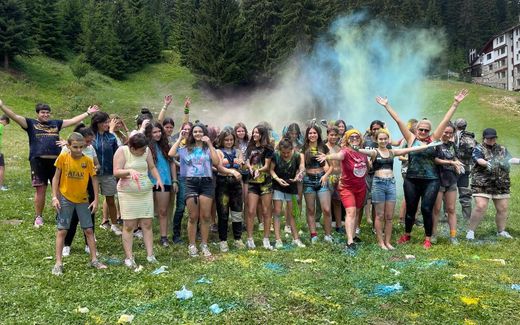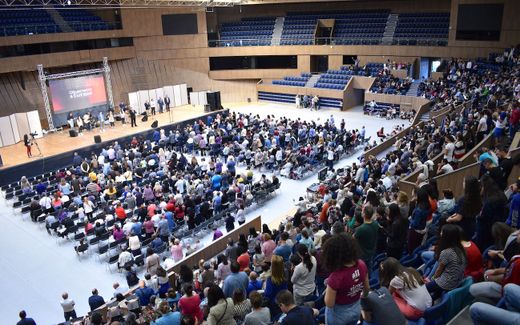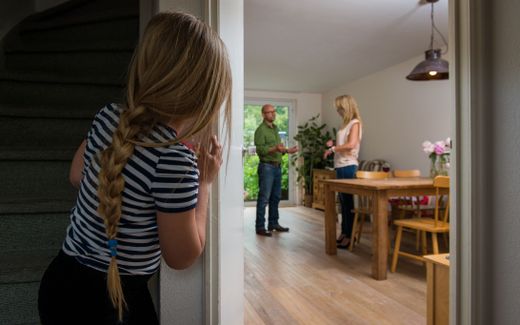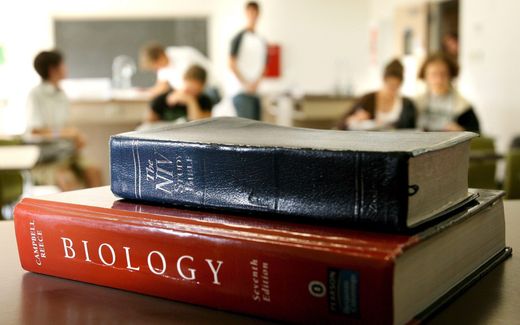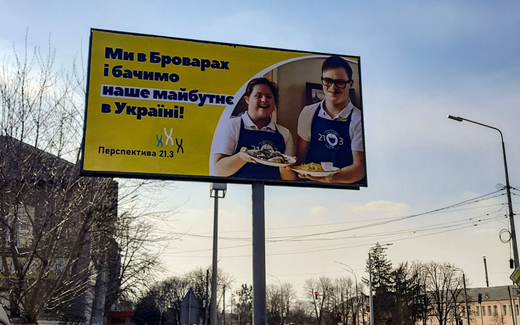Column from Bulgaria: The Gypsy Project: saving children from oblivion
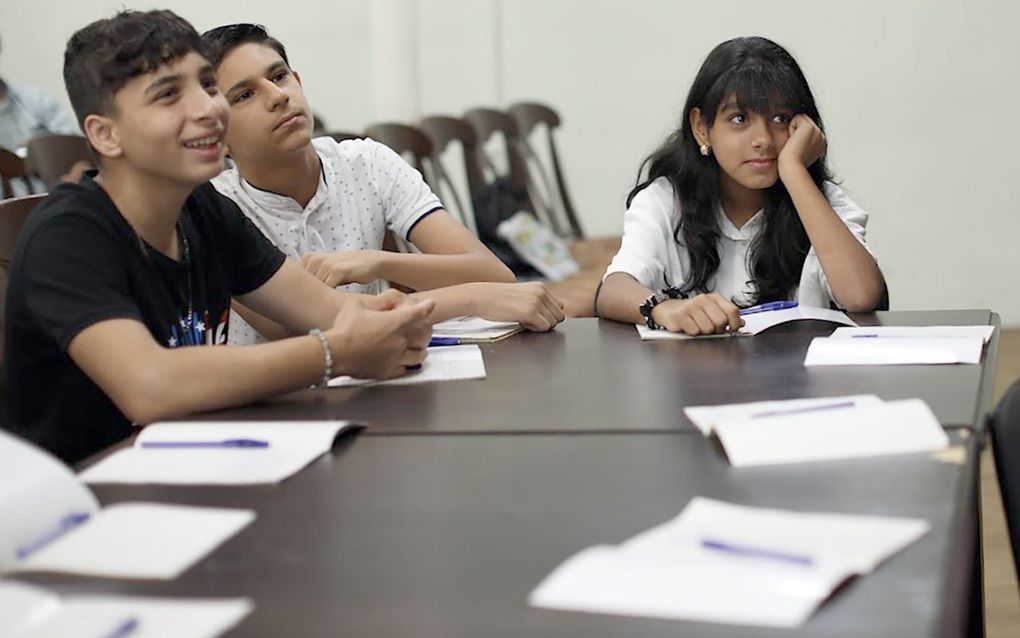
Gypsy children participate in the so-called Gypsy Project that helps the students succeed in their academic efforts. Photo Gypsy Project
Christian Life
“We are not sending you to school anymore.” This is what 14-year-old Ginka heard from her grandparents. She had just finished 8th grade in primary school, and she dreamed of becoming a doctor. Ginka’s mom had bipolar disorder, so she wanted to learn how to help her, and others like her, get better. But Ginka was a girl, and such a dream was impossible.
She was also Roma. In her surroundings, education was not considered a priority. While almost all Bulgarian children finish high school and then sign up for university education, this is not true within Roma communities. Thousands of schoolchildren barely attend school, and many drop out after 8th grade.
Break
Ginka, however, was ambitious to break from this mould. She informed her family that she wanted to sign up at a prominent school in nearby Plovdiv, Bulgaria’s second-largest city.
Ginka’s family lives in Perushtitsa, a small town nestled in the outskirts of the Rhodope Mountains, some 22 kilometres south of Plovdiv. According to a recent census in 2021, Perushtitsa has the highest percentage of Roma per capita in the whole region. Almost one of every three people from its 5000 inhabitants are Roma (or Gypsy, as many of them prefer to identify themselves).
Minority
A few years ago, the local authorities published a Municipality Strategy for “equality, incorporation and inclusion of Roma” in 2021-2023. The document identifies education as the most severe issue within the minority population. It sets a priority intention to invest in “equal access“ for all children. At the time of publication of the Municipality Strategy, 46 per cent of the pre-schoolers and 71 per cent of the pupils in Perushtitsa come from Roma families. Most of those children drop out of the school system after 8th grade, and not a single one has ever graduated from a university.

That is, until Ginka Kostova rose up. Even though her family was reluctant to let her attend secondary school after her 14th birthday, she prayed passionately weeks for open doors. Eventually, in a miraculous turn of events, she managed to get into an elite Plovdiv school, with advance classes offered in Biology and Chemistry. For the next five years, she commuted daily on public transport to the city, taking five classes a day, and eventually graduated with flying colours. Her ambition, however, lay much higher.
During her last year at high school, she found a program for Roma youth, offering additional classes in Biology and Chemistry. And so, beyond her daily school routine, she travelled every weekend to the nation’s capital, Sofia, joining a class of thirty Roma from all over Bulgaria. Her desire to study and her leadership potential impressed the teachers. As a result, she was offered two scholarships: one at Plovdiv Medical University and one for Pharmaceutics and Computer Chemistry at the University of Sofia.
Youth group
The temptation to stay in the nation’s capital was powerful. By this time, however, Ginka had also finished a local Bible school. She was an active member at her hometown Pentecostal Church. Here she lead the youth group, taught the Sunday School, and participated a number of ministries.
One Sunday morning, her pastor Salcho Salchev announced from the pulpit the launching of a new program for helping children develop their full God-given potential. He announced it as a way to invest in the lives of high schoolers, allowing them to navigate through their educational challenges. The church building would open doors for a group of Roma kids to meet in the afternoons to study their lessons under adult supervision.

“We will call it the Gypsy Project,” pastor Salcho declared. “I am not a fan of the term Roma. It feels foreign, unnatural. We are Gypsy. This program will help children embrace their identity and, at the same time, let them discover the value of education. And as they graduate and find decent jobs, this will change their self-awareness and will bring a new flavour to the term Gypsy: a sense of dignity and worth.”
Project
As the pastor outlined the concept, Ginka listened with a growing sense of excitement. This was precisely what she had been preparing for all her life, she thought. This was the fulfilment of so many dreams and prayers. At the end of the worship service, she told pastor Salcho that God was clearly prompting her to join the project.
That day, Ginka’s life took a new turn. She ignored the Sofia University scholarship opportunity and took the studies at the Medical University of Plovdiv. She wanted to be closer to her hometown of Perushtitsa and contribute to the new initiative to the best of her abilities.
Change
The Gypsy Project initially started as a different kind of program. At the beginning of the 21st century, a family of two US Christians, Patricia and Robert Bruton, visited Bulgaria to teach Biblical Leadership classes to pastors. By 2012, however, God changed their vision and prompted them to seek ways to contribute to a spiritual change in Roma culture, “which conflicts with every major culture around the world around the world where Gypsies are found.” They prayed for more direction and wrote a new vision prospect based on the understanding that “a change of that magnitude must start with children... and go on for generations.”

Led by the belief that accepting Jesus Christ as a personal Saviour is by far the most important single event that changes a person’s life, the Brutons now had an additional perspective. Faith needs to be coupled with personal development and success in educational efforts. Christ’s call is “Come and follow Me,” which simply translates as “Be like Me” – a fact many people seem to miss. Jesus was teaching with his actions. His compassion, His personal attention, His desire to set aside time for individuals – all of this is a form of teaching by example.
Similarly, children, today would learn much more by observing real-life Christians rather than just listening to words. An exemplary life is transferred on a much deeper level than a lesson presentation. And if it is possible to combine personal relationships, a Christian belief system and a daily portion of school material, this could be the path to changing the whole culture.
Intention
So, in 2014, along with pastor Salcho Salchev and a Bulgarian Bible School administrator, Marina Dimitrova, the Brutons founded what was later called “the Gypsy Project”: a form of child evangelism and discipleship wrapped around an afterschool tutoring program. The original intention was to build a new school in Perushtitsa and address head-on the problem of illiteracy. But it was not possible. The government had too many regulations for opening a school. So, they started after-school programs. The local church offered the location and equipment, and the mentors from the project took over teaching and leading.
Snack
The first group started in September 2014. Ginka Kostova undertook home visits motivating parents and explaining the concept door to door. Since the Bulgarian educational system provides after-school programs only until the 4th grade, the project first focused on a group of fifth graders. Every class within the project consists of no more than 15 children, and it has to stay connected to a local church. The children receive an afternoon snack and then do their homework and study their lessons with a supervisor. There is one condition for every child to stay in the program: they have to maintain their school grades. This does not mean they should necessarily have excellent marks; not all children are capable of such a jump. All they need to do is to invest efforts to keep their current school success.

“Our vision is of a changed culture of Gypsy people that embrace the positive aspects of the cultures in which they live, rather than the separated, survivalist culture and mentality that has caused them to be reviled and discriminated against for a thousand years,” declare the Brutons. Their network of supporters does not pay any salaries. Still, it does provide funds for the children’s snacks, textbooks and some extracurricular activities like excursions to museums and zoos.
The project also offers scholarships to students motivated to continue their education at a university. The only condition is the same as with the after-school program: once you start earning a certain level of grades, it has to be maintained.
University degree
In the meantime, Ginka Kostova finished her education and became the first person from the whole 1500 people Roma community in Perushtitsa to hold a university degree. Her dream was coming to a fulfilment beyond her wildest dreams. Today, she is appointed as the key person running the Gypsy Project. She is responsible for overseeing the activities, recruiting new leaders, inspiring volunteers, and teaching Bible classes. She got married at age 29, which is unnaturally late for Roma standards, and she and her husband have a beautiful child, a miracle boy named Moysey (Moses). Ginka’s passion is to model what it really means for a person to outgrow the ghetto mentality, invest in systemic study and lead a fulfilled life as a child of God.
As the Gypsy Project finishes its ninth year, it now serves almost two hundred children in five locations: Perushtitsa town, Stolipinovo (district of Plovdiv), Shishmantsi village, Saedinenie town and Kalekovets village. The team now consists of five regional leaders and 38 volunteers who are being systematically trained under Ginka’s supervision. In September 2023, they have plans to start the project in three new places.
Dream
The progress has made a huge impression in Perushtitsa. A former MP announced that he was so inspired that he wanted to see every village and every town in his regional municipality get plugged in. In a CBN documentary aired in English and in Bulgarian, local mayor Pavel Gugzherov said, “Those children were not able to even dream. And now their thinking is different. As they see good role models, they can visualise their future and realise their potential. That is huge.”
The wheels are set in motion. And as the Gypsy Project is getting ready to enter its 10th year of operation, more eyes are turned to its development; more prayers are lifted for its success; more youth are committed to volunteer and lead; more children are receiving a chance to map out their lives with a strong morality, spirituality and intellect.
About the author
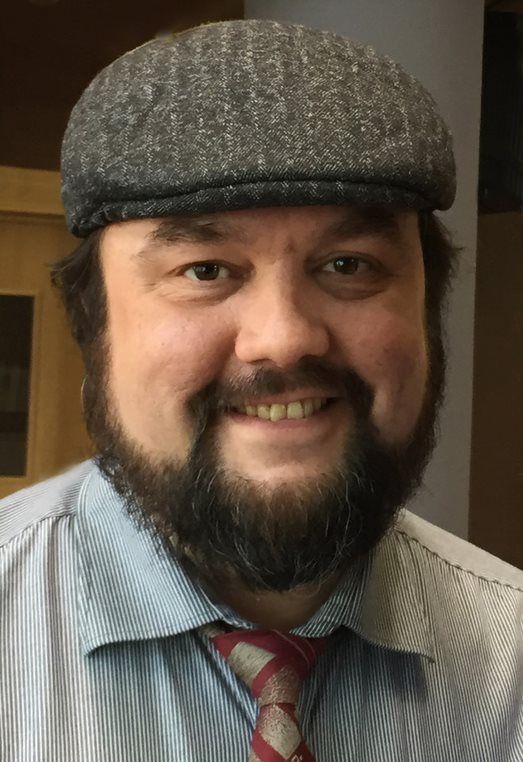
Vlady Raichinov (1974) is a freelance translator, journalist and Bible teacher from Bulgaria.
He is involved at the editorial committee of “Zornitsa” newspaper (in print since 1871) and heads a small publishing house called “Beginning of Wisdom”.
He is part of the pastor’s team at First Baptist Church, Sofia. Currently, he serves as vice president of the Bulgarian Evangelical Alliance and general secretary of the Bulgarian Baptist Union.
Vlady and his wife Katya parent an amazing daughter named Maria.
Related Articles


